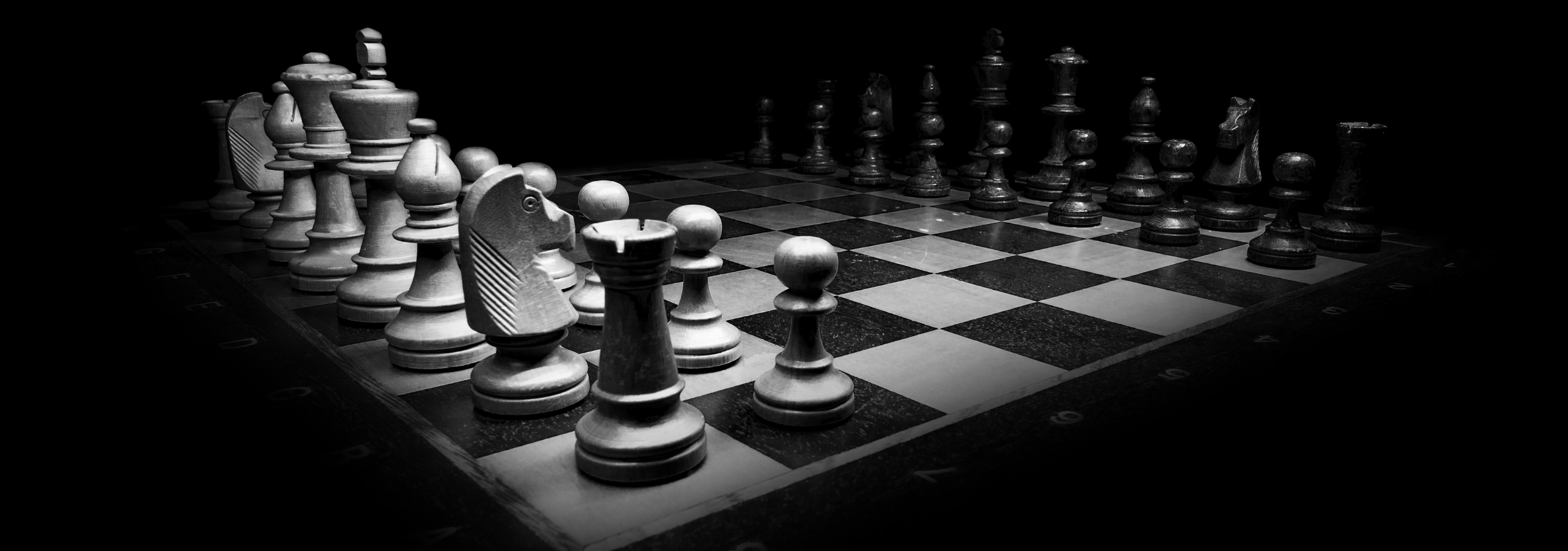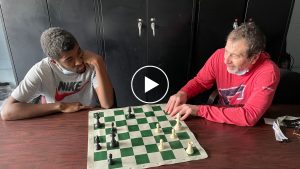The Transformative Power of Chess at PEP
If you know nothing else about John Saade, you know that he is a chess fanatic. Saade, a teacher-counselor at PEP Phoenix, credits chess with saving his life. It was his love for the game, he says, that got him through a difficult period of his youth. He also believes it has the power to transform the lives of the kids with whom he works.
For some, that may seem like a bold statement. Like all of PEP’s Day Treatment Centers, PEP Phoenix serves young people with emotional and/or behavioral issues. Unlike its other centers, though, the young people at PEP Phoenix also have cognitive delays. Chess has a reputation as a highly academic pursuit reserved only for the brainiest among us. Not so, says Saade. Anyone can enjoy the game and reap its benefits.
The Power of Chess: Building Connections
Damon* is one such non-traditional chess player. Because of his significant cognitive delays, Damon has a hard time comprehending even elementary academic concepts. His teachers would work with him on a math problem, say 1 + 1 = 2. They would explain it to him, and he could repeat it, but if asked again, even moments later, he would not know the answer.
Saade, undeterred, taught Damon to play chess. He says the difference in Damon’s processing is evident. Saade believes understanding chess strategy has the power to help people make connections in new ways. “Teachers have come to me and said, ‘What did you do with Damon? His mind has just changed. Where he couldn’t make connections before, now he can,’” explained Saade. “And he’s just one example. I’ve seen this phenomenon happen over and over again.”
The Power of Chess: Self-Regulation
 In addition to helping build connections, Saade says chess is a good way for young people to self-regulate and to learn social-emotional skills. Gio Hampton, one of Saade’s chess club members agrees. “At first I didn’t care about chess that much but it felt relaxing. I could block other things out,” he says. Hampton also believes chess has helped him become more confident.
In addition to helping build connections, Saade says chess is a good way for young people to self-regulate and to learn social-emotional skills. Gio Hampton, one of Saade’s chess club members agrees. “At first I didn’t care about chess that much but it felt relaxing. I could block other things out,” he says. Hampton also believes chess has helped him become more confident.
“In my last game against Mr. Saade, I tricked him,” Hampton smirked. Essentially, Hampton sacrificed a piece (which looked like a mistake) so that he could trap Saade with a different piece. He ended up winning. “He underestimated me,” said Hampton proudly.
“I did,” agreed Saade.
Another chess club member, Warren Elder also says that chess is calming and that it helps him focus. He thinks chess has helped him learn to be more patient. Like Hampton, Elder feels proud of his accomplishments in chess. This pride, which seems to be universal among the students in Saade’s chess club, is crucial for these young people. “There are so many areas of their lives where they feel “less than” and here they are succeeding at chess of all things!” enthuses Saade.
Watch Elder Make a Chess Connection
The exact moment Elder figures out the right move is easy to spot. He says, “Oh!” when he has the epiphany.
The Power of Chess: Strengthening Social Skills
Jerome*, one of Saade’s students from several years ago, demonstrated just how significant the social-emotional lessons can be. Jerome’s emotional challenges sometimes led to very volatile behavior. “He could flip a desk with two fingers, and it would just spin,” explained Saade. Yet, he loved being part of the chess club. When he heard there would be a tournament, he asked Saade if he could participate. Saade was hesitant and spoke to Jerome’s other teachers. They were also worried.
Ultimately, Saade took a risk. “I told him, ‘Our concern is that if you lose, you will get upset and destroy things. If you lose, which you probably will, and you are unable to control your emotions, you won’t be able to come back to chess club.’” Jerome agreed.
At the tournament Saade’s eyes were glued to Jerome. “In his first game he lost his queen. He froze. It looked bad, but he continued the game. Soon, he got checkmated. He pushed his chair back a little and I thought, ‘This is it,’ but he just put his head down for a minute. He sat up and put his hand out and said, ‘good game.’ It was incredible.”
Saade often talks with his chess students about the parallels between chess and life. When they are in a situation where they need to make a choice – a good decision or a bad decision – Saade will often say, “Pause here. Now, make a good chess move.” They seem to get it and usually make a good choice.
This June, PEP Phoenix and PEP Hopewell have planned a chess tournament. Hampton, the student who tricked Saade recently, says he’s excited to get a trophy. He’s convinced he will win. Saade says there is a good chance he will. But, even if he doesn’t, Hampton has benefitted tremendously from his experience. All the kids have.
“All human beings have the desire to elevate themselves,” says Saade. “Chess – it builds self-esteem. It elevates these kids.”
For more information
For more information about the power of chess at PEP, visit our website. Contact Nicole Molnar, sr. director, clinical services, at 216-361-7760 ext. 110 or via email to see if a student in your district may be a good fit.
Please note, referrals to PEP’s Day Treatment Centers are made through school districts. Interested parents or caregivers should contact their school administrator.
*Not his real name.

